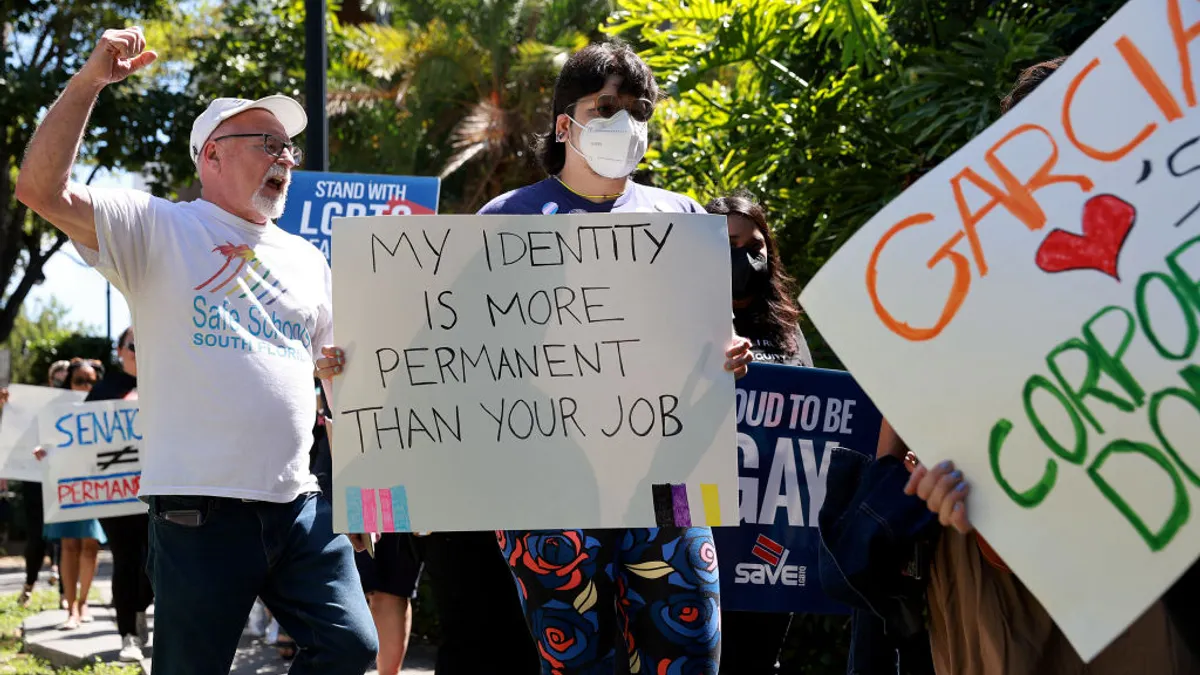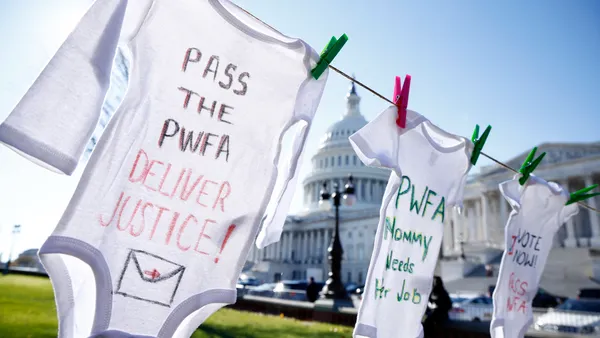Dive Brief:
- A transgender school teacher did not have her First Amendment rights violated when Florida passed a law in 2023 disallowing public K-12 employees from providing students “his or her preferred personal title or pronouns if such … do not correspond to his or her sex,” a split 11th U.S. Circuit Court of Appeals ruled July 2 (Wood v. Florida Dept. of Education).
- The teacher’s case failed because she could not “show, with respect to the expression at issue here, that she was speaking as a private citizen rather than a government employee,” the 11th Circuit said, deciding 2-1 in the state’s favor. The fact that she was addressing students in her classroom during class hours meant she did so in her capacity as a government employee, the court determined.
- The decision reversed that of a lower court finding the statute “substantially likely” to violate the teacher’s First Amendment rights and granted her a preliminary injunction. One appeals court judge also dissented.
Dive Insight:
Acknowledging that public school teachers are entitled to First Amendment rights even at school, the 11th Circuit outlined the precedent for resolving what it referred to as the “private-citizen/government-employee tension.” An employee can show her interest in speaking outweighs the state’s “interest in promoting the efficient delivery of public services” by showing first, that she was speaking as a citizen, rather than in her capacity as a government employee, and second, about a matter of public, rather than private, concern.
Because the teacher was defending in-classroom statements about her her title and pronouns, and her freedom to write them on the whiteboard and wear a “she/her” pin, she was addressing students during the school day, the 11th Circuit reasoned, and therefore acting as a government employee.
Because the court determined the teacher failed the first part of the test, it did not explore the second part.
In a dissent, one judge argued that personal titles and pronouns are significant markers of individual identity and that their use is “‘speech that concerns the ordinary responsibilities of her employment,’ and that metric — as we have expressly held — is insufficient to take the speech completely out of the First Amendment’s scope.”
Florida has sought to restrict or mandate expression related to LGBTQ+ issues in several ways in recent years, particularly in the education context. The 2022 Parental Rights in Education Act — often referred to as the “Don’t Say Gay” bill — prohibited classroom discussion of or instruction in gender identity and sexual orientation topics in kindergarten through 3rd grade.
Earlier this year, a teacher in another Florida county did not have her contract renewed and is facing a state review of her professional certificate after using a student’s chosen name that corresponded with the student's gender identity.
















